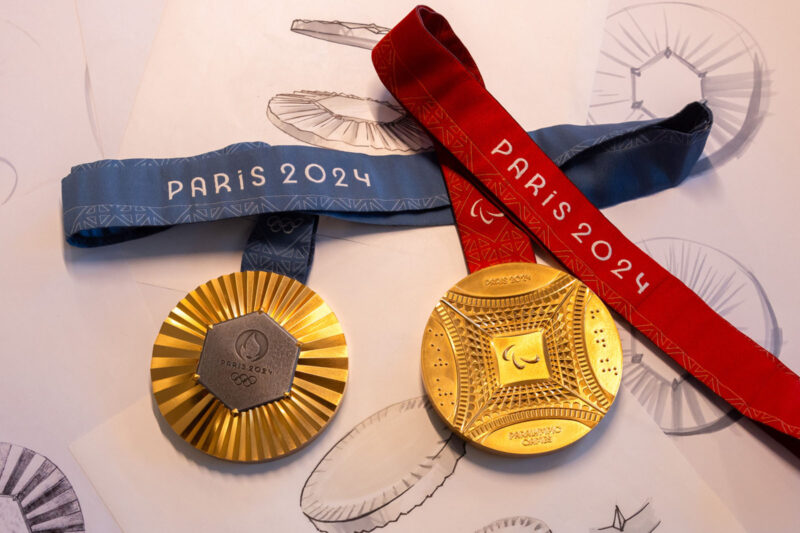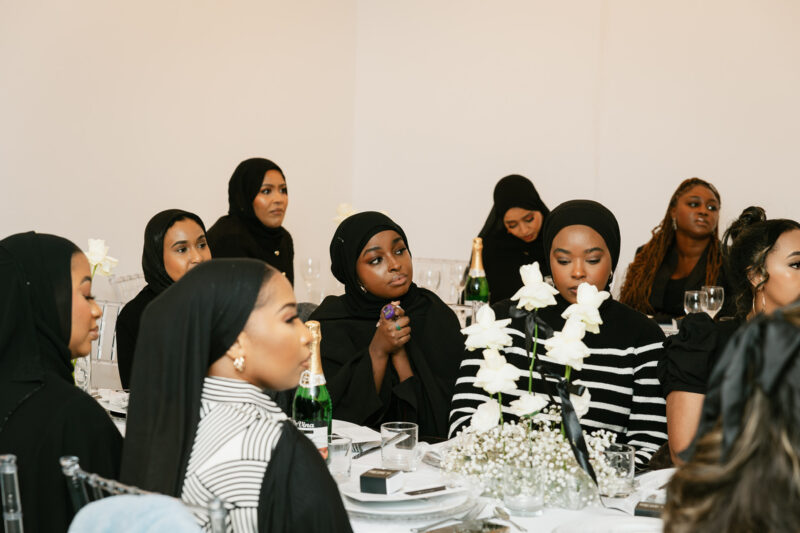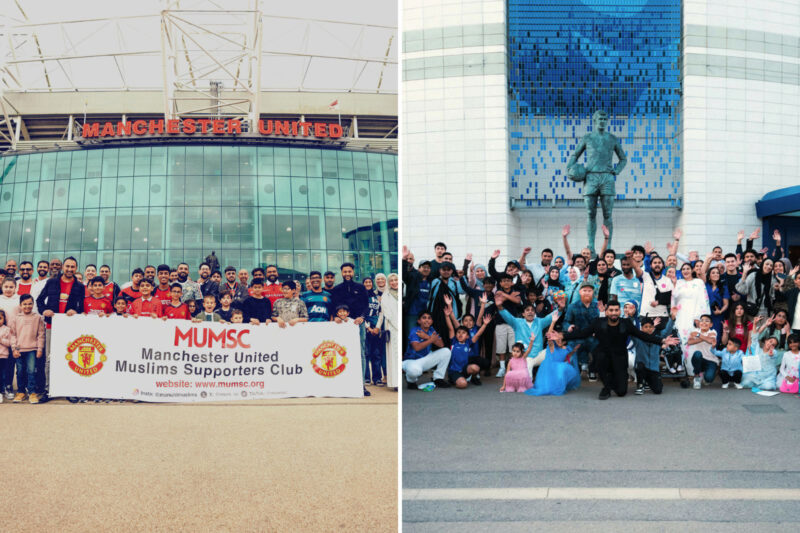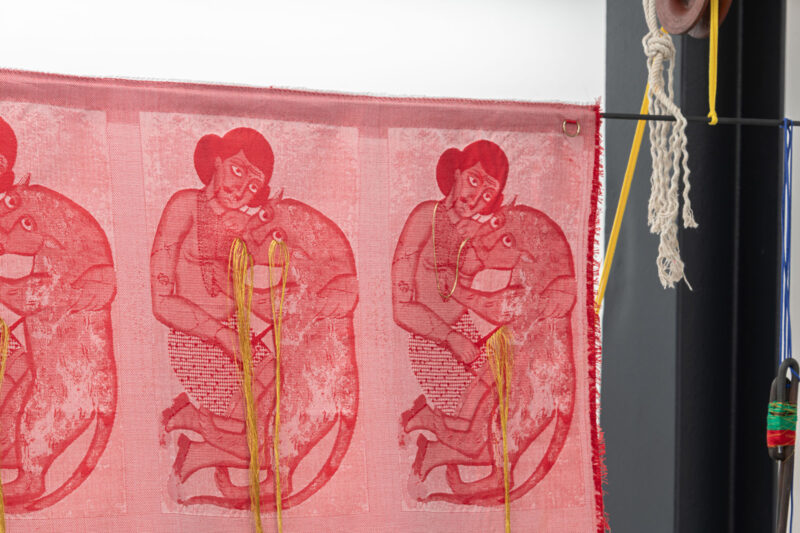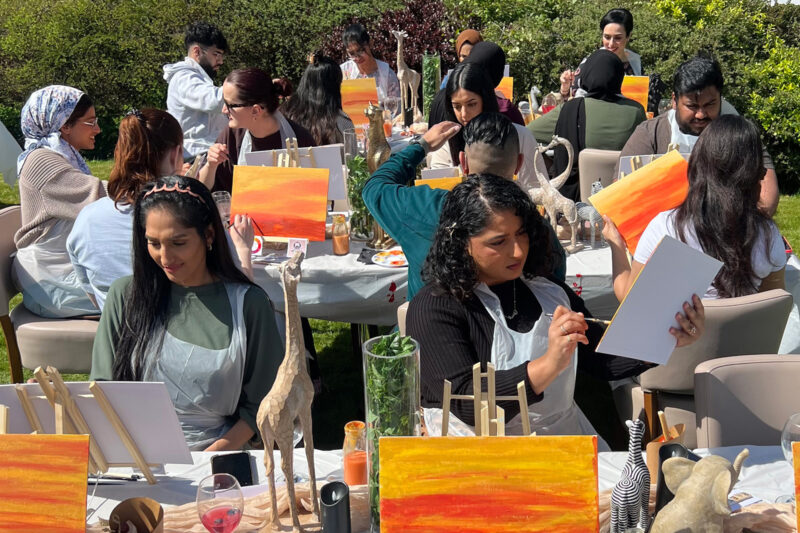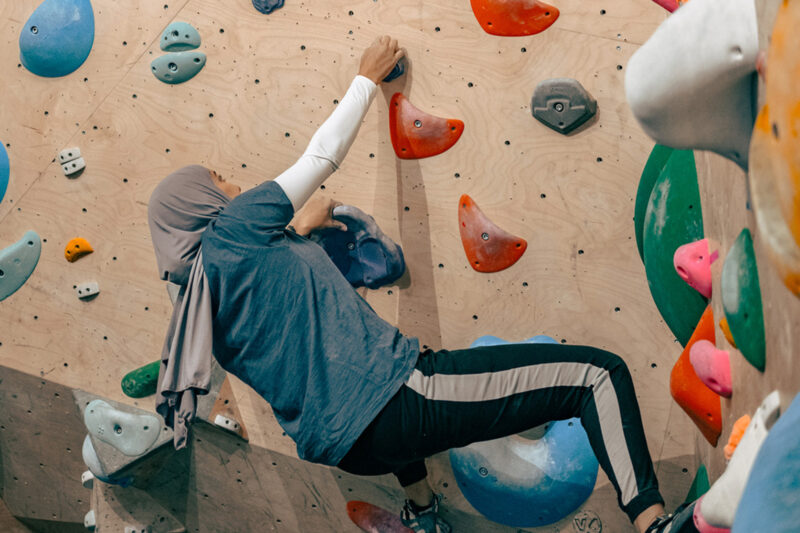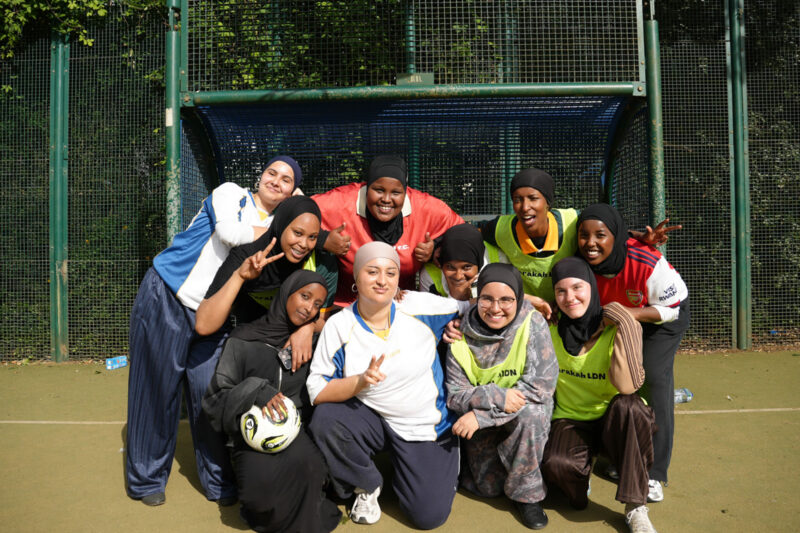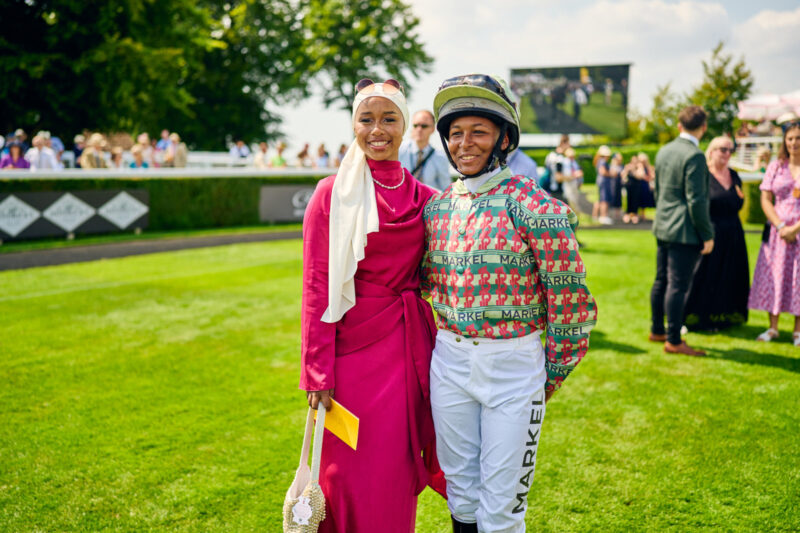Taekwondo is capturing the hearts and bodies of British Muslims
As it gains a wider audience at the Olympics and Paralympics, many have found a sense of community in the Korean martial art, which supports an environment of discipline, respect and inclusivity
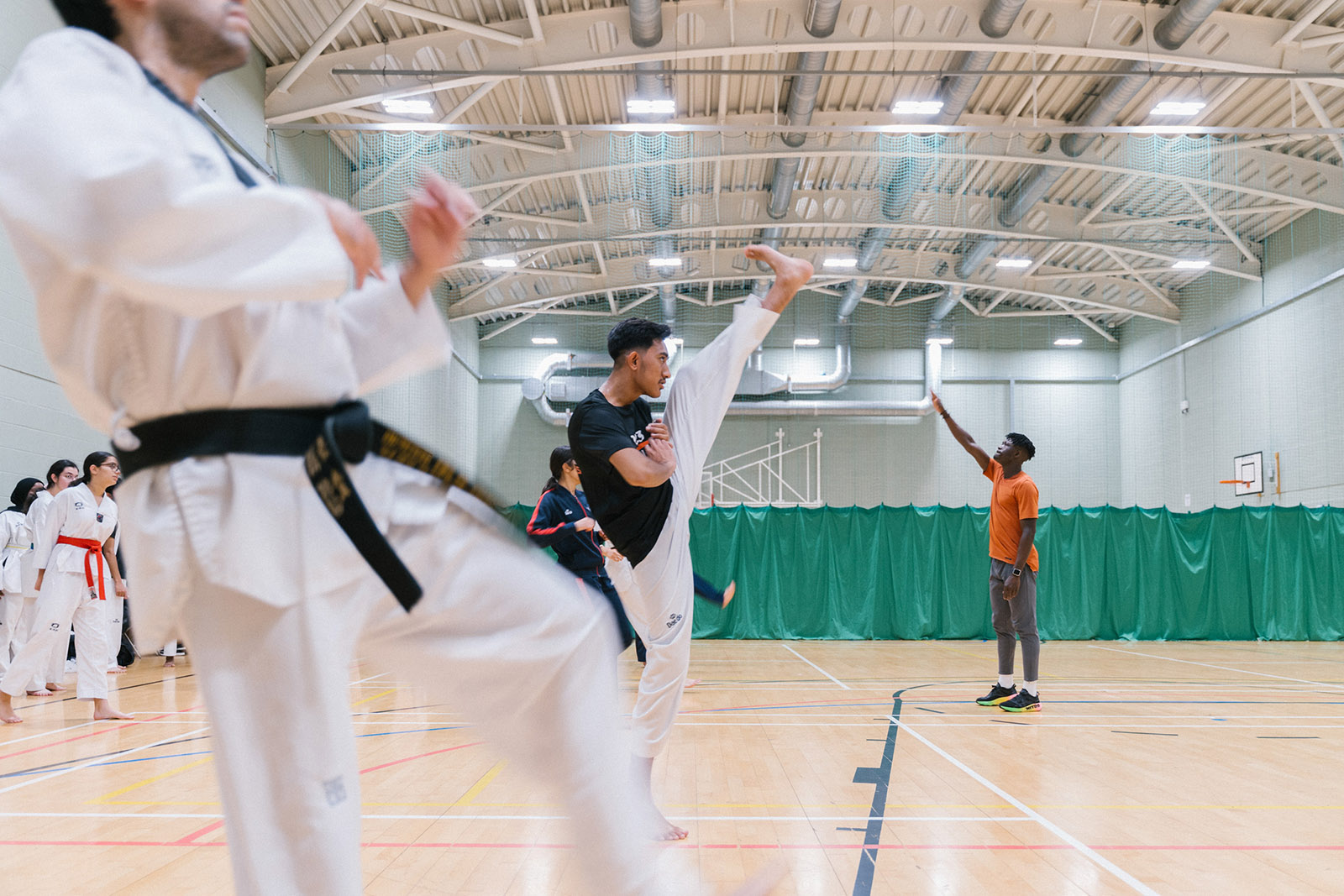
Midday sunlight pours in through the double doors and skylights of the hall at the West Acton Community Centre in west London. A dozen or so students of taekwondo, dressed in brilliant white uniforms, are practising their technical patterns. Synchronised kihap (shout in Korean) echoes through the building as they kick and punch the air.
The classes at the London Taekwondo Academy (LTA) are run predominantly by instructors from Afghanistan, a country where the sport has long thrived. Founded in the 1990s, the LTA hosts 17 sessions a week with hundreds of students of all ages, its student body reflecting the growing interest in taekwondo among Muslims of various ethnic and cultural backgrounds in the UK.
While research by sports bodies continues to find that British Muslims, particularly women and girls, are not as engaged in sport as other communities, taekwondo appears to be overcoming these barriers.
Said Khelwatty, raised in India but originally from Afghanistan, is a master in taekwondo and co-supervises the classes in Acton. He says elements of taekwondo have universal appeal, extending to Muslims as much as to other communities. “The tenets of taekwondo, or the environment that taekwondo creates within a club — the respect, the discipline — make you feel automatically at ease,” he says.
“Whether you’re a man, woman, hijabi, not a hijabi — anybody. When you start the lesson — charyot, kyung-rae (attention, bow) — everyone is the same.”
Taekwondo is a Korean martial art with five main tenets at its core: courtesy, integrity, perseverance, self-control and indomitable spirit. It has ancient influences, but by martial art standards it is very young, having been formally established as a sport in the 1950s.
Since it was made an official Olympic sport at the turn of the millennium, an estimated 60 million now practise taekwondo across the world. British Taekwondo, the national governing body, currently has about 16,000 members, and Khelwatty estimates there are likely to be 100,000 people practising the martial art across the country.
Its growth is especially prominent among British Muslims, helped by athletes such as Lutalo Muhammad who has medalled twice for Great Britain at the Olympics, in 2012 and 2016. Meanwhile, this summer the Afghan athlete Zakia Khudadadi, based in France, won the Refugee Paralympic Team’s first ever medal.
Tasneem Tawil, a former professional taekwondo athlete, represented Libya at an international level but mostly trained in London. She says she always felt welcome in the community here. “The uniform is modest — and I remember that being something my parents noticed and pointed out. For a practising Muslim and hijabi, it was a very appealing element.”
The child of Libyan national team athletes, she began training at the age of 12, her mother signing up her and her brother for classes as a way to grow in confidence and learn self-defence.
“Although it was my parents’ support that got us into the sport, it was the amazing taekwondo community who kept us there for so long,” she tells Hyphen. “It was such a safe space, and even with my hijab on I was never ‘othered’.”
There has always been a strong Muslim contingent at the LTA’s classes — likely down to the fact that the instructors themselves are of that faith or from Muslim countries, Khelwatty says. Another aspect is accessibility. Around 40% of Muslims live in deprived areas across the UK, and where other sports might require access to a purpose-built space or specialist equipment, a Taekwondo session requires only changing into uniform and a walk to the local church, mosque or community centre.
“A conversation I’ve had among my peers is that taekwondo is a poor man’s sport,” Khelwatty says. “You buy a uniform, a kicking target, and you’re in. Compare that to golf, tennis, or other sports — the amount of investment you’re having to put in there is considerably higher.”
The fact that taekwondo sessions can be held in multipurpose spaces has another benefit — one of exposure. Khelwatty points out that someone might be heading to a community centre or the mosque and see or hear a taekwondo class on their way out, piquing their interest. Indeed, it is mostly through in-person interactions and word of mouth that the LTA has been able to expand and open new classes.
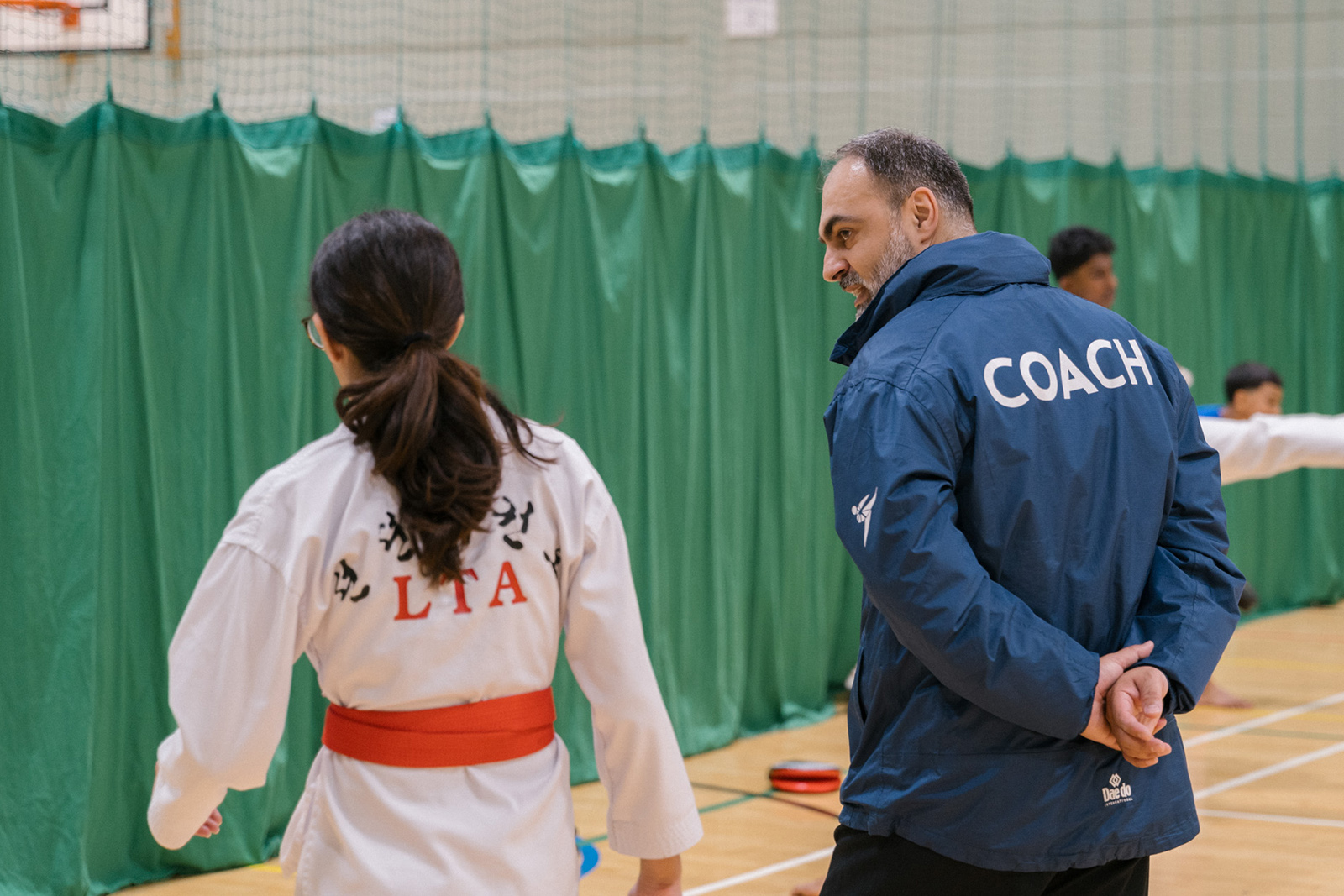
Sophie Jameson, development manager for British Taekwondo in Manchester, says word of mouth has also proven key to the growth of taekwondo among Muslims in the city.
“From speaking to community leaders, mosques, parents, they see taekwondo as a sport that instils a lot of the beliefs that Muslims hold. The discipline side of the sport is probably the biggest one that seems to come out,” she says.
Just under a year ago, British Taekwondo helped set up a new community-led class at a mosque in the north of Manchester. Though decisions such as the price of lessons are usually made by the instructor, in this new model the students and their parents or guardians call more of the shots. Jameson says some Muslims keen to get involved in the sport in Manchester were apprehensive about some of its practices, particularly in sparring, as, for example, some Islamic scholars argue that it’s forbidden to strike someone in the face — something that could happen accidentally in a kick to the head.
But the community-led model allowed for more discussion between instructors and class members for compromise to be reached. Now, students can fight in these classes without dealing or receiving kicks to the head.
The class has been so successful that they’re looking to put a similar one in place at the British Muslim Heritage Centre in the south of Manchester, and they’ve also started delivering women-only sessions.
“For me, the best thing about taekwondo is the inclusivity,” says Khelwatty. “The moment two people tell each other that they do taekwondo, there’s an instant friendship and an instant place for you.
“That feeling of welcome, I don’t think it’s there for any other sport or martial art.”
 Newsletter
Newsletter


